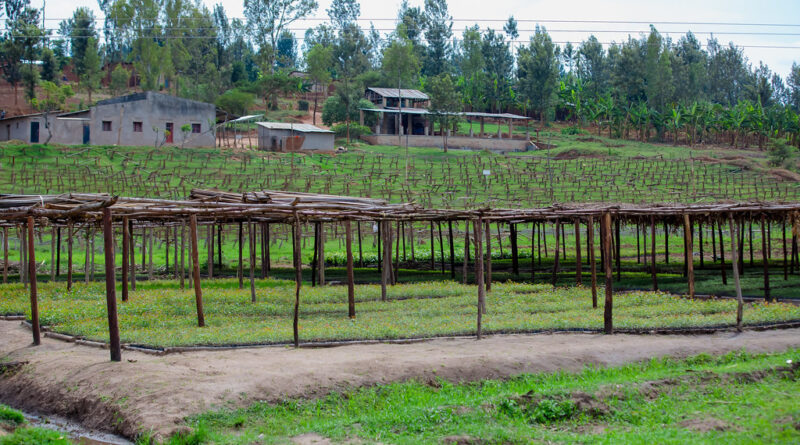Rwanda secures $18 million GEF grant to expand Green Amayaga program across southern province
In a major win for Rwanda’s climate resilience and environmental restoration agenda, the Global Environment Facility (GEF) has approved an $18 million grant to scale up the Green Amayaga Program across the entire Southern Province.
This transformative funding will extend the reach of ecosystem restoration and community resilience initiatives to six districts, Kamonyi, Muhanga, Nyanza, Ruhango, Huye, and Gisagara.
The newly endorsed project builds upon the success of the ongoing Green Amayaga Project, which has already made remarkable progress in restoring degraded ecosystems and strengthening the climate resilience of communities in Kamonyi, Nyanza, Ruhango, and Gisagara.
Implemented through a programmatic approach, the project will promote nature-based solutions and integrated natural resource management while enhancing livelihoods through ecosystem-based adaptation.
The expansion of the Green Amayaga initiative reflects Rwanda’s commitment to inclusive, science-driven, and locally led climate action.
“Rwanda is committed to restoring its environment and strengthening the resilience of its people through inclusive, science-based, and locally driven solutions,” said Juliet Kabera, Director General of the Rwanda Environment Management Authority (REMA).
“Thanks to the unwavering support from the GEF, we can now scale up Green Amayaga across the entire Southern Province. This marks a critical step forward in our national efforts to build a climate-resilient, green economy.”
Kabera also expressed gratitude to the United Nations Development Programme (UNDP) for its technical guidance and partnership during the project’s development phase.
The Green Amayaga initiative has already delivered significant and measurable outcomes in its current areas of implementation. Over 929 hectares of woodlots have been planted, and the buffer zone of the Kibirizi–Muyira natural forest has been rehabilitated.
More than 243,000 fruit trees have been planted, and erosion control measures—utilizing agroforestry trees, terracing, and reeds have been applied to 13,886 hectares.
In addition, 93 kilometers of riverbanks have been protected, and roadside tree planting has been carried out on 763 hectares to combat soil erosion and promote road safety.
To support cleaner energy access, over 21,000 families have received improved cookstoves, reducing deforestation and indoor air pollution. Moreover, 2,534 vulnerable households have benefited from livestock distributions including cows, goats, and pigs—boosting food security and income generation.
These achievements underscore the value of integrating environmental restoration with socio-economic development. By scaling up these efforts, the project aims to replicate these benefits across more communities, enhancing biodiversity, improving resilience to climate change, and creating green jobs.
The $18 million grant comes shortly after the GEF approved an additional $9 million for the restoration of the Nyungwe–Ruhango Corridor, bringing recent GEF support for Rwanda to a total of $27 million.
These investments align with Rwanda’s National Strategy for Transformation, Vision 2050, and the country’s updated Nationally Determined Contribution (NDC), reaffirming its commitment to sustainable development and global climate goals.
As Rwanda accelerates its journey toward a green and resilient future, the Green Amayaga Program stands as a powerful model of environmental stewardship, community empowerment, and global cooperation.

